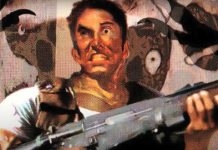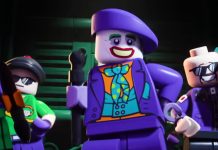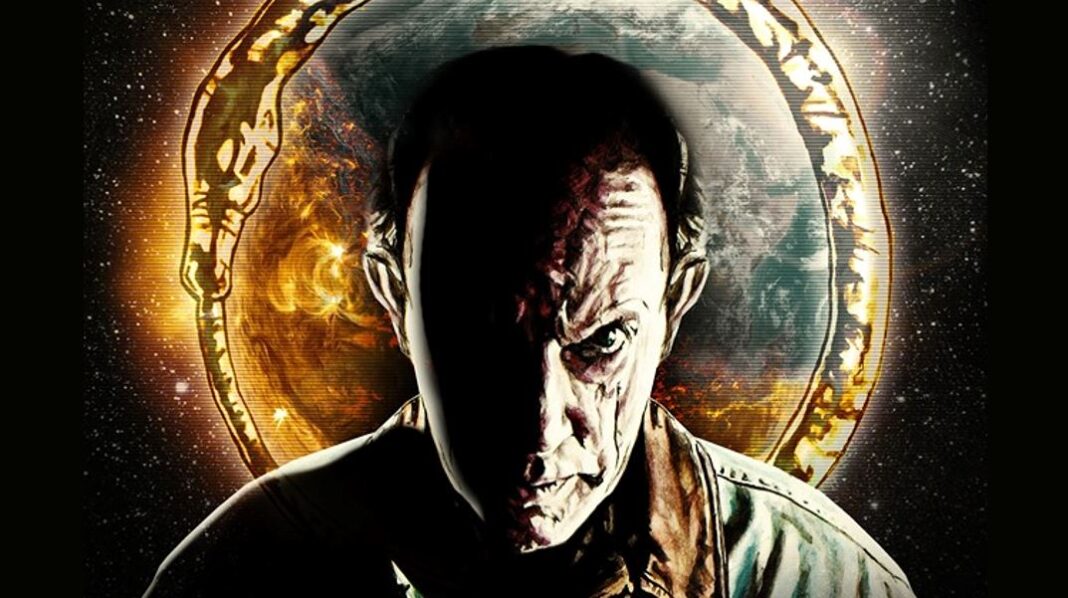In 1996, Chris Carter, already enjoy success with The X-Files, created a new television show called Millennium. This was a much darker show that stared Lance Henriksen in the title role as Frank Black, a former FBI profiler who had the ability to look inside the minds of killers. Recently, I had to chance to talk with director Jason Morris and executive producer Troy Foreman about their documentary Millennium After the Millennium. They discussed the show, why they wanted to make the documentary, and what actually goes into putting a film like this together.
Horror Geek Life: How did you both come to work in the entertainment industry? Was it something you wanted to do or one of those happy accidents?
Jason: For the most part, it was on purpose. It started when I was about sixteen, although my initial thoughts on it were by accident, though. I took this class in high school, it was called Designing Careers, where you had to sort of think about what you wanted to do with your life, and I wasn’t interested in film at the time, I was more interested in music and stuff. I came across one of the jobs they had listed, which was a film director, and it sounded interesting, so I looked into it and found out there was a film school nearby in San Francisco. I never knew that this was something you could do, so it just grew from there, I started shooting little shorts and then it became a conscious choice to do that and make it a career.
Troy: I guess you could say mine was a happy accident. I started working on the Back to Frank Black campaign around 2008, and one of the aspects was trying to interview the cast and crew, and I had no idea how to get in contact with these people. I reached out to some friends, they gave me some ideas on what to do. Thank god for IMDb; I started reaching out to managers and publicists, started getting some response, started interviewing some cast. I enjoyed doing the interviews, so I decided to start my own website, Pop Culture Principle. I did that for a couple of years and met a guy named Patrick Munn. He was a news guy from the UK and he ran a website called TVWise, and he hired me to do all his interviews for the site. I did that for a couple of years, left that, and continued to run my site. Here we are in 2020, and I’m still running it.
HGL: Jason, what got you interested in directing and, Troy, how did you get into producing?
Troy: There again, I kind of fell into it. I was interested in doing one final project for Back to Frank Black and I remembered a conversation I’d had with Jason. I knew he was a huge fan, and I pitched him the idea of doing a documentary and to make a long story short, everything kind of fell into place and I ended up becoming a producer.
Jason: What Troy did, the work did, it was no small feat. He’s one of those people that when he sets his mind on something, it gets done, and that is just what this project needed. He did a fantastic job and really, took to it very easily and effortlessly. There are some people who get into producing for the wrong reasons- for money, for a credit- but Troy was involved with the documentary for all the right reasons, and I’m very grateful for that.
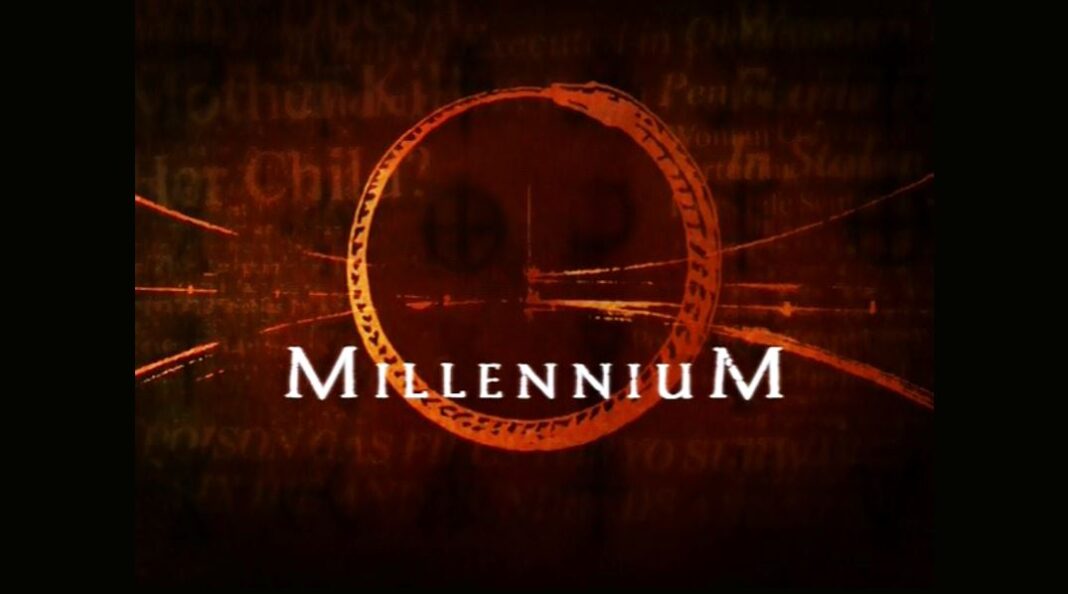
HGL: I still remember the first time I saw Millennium when it first came out in 1996. What was it that struck a chord with you both, that made you such huge fans of the show?
Troy: I was already a huge fan of Lance and I always hoped he would get his chance to shine, like a TV series. When I found out he was going to be the lead on Millennium and it was about FBI profilers, which I’m really into, I was really stoked for it. After seeing the pilot, I don’t think I even spoke for five minutes once it was over. I loved it, it was so dark, so crazy but right up my alley. At that time, the internet wasn’t really a huge thing, so I didn’t have anyone to talk to about it. The few friends I did talk to face to face were like ‘dude, seriously, serial killers, you like that kind of stuff’, but yeah, I was hooked from the very beginning.
Jason: I didn’t really know anything about Millennium when it was on, I didn’t watch The X-Files and to be quite honest, I didn’t get into horror or mystery until I got a little bit older. I wasn’t really paying attention. I had this full-time job, working sixty hours a week, but then a friend of mine told me Lance was on this new series, and I’m a big fan of Lance. I had missed the whole first season, but he had taped them all, so I poured through them and absolutely loved it. Every aesthetic choice in this show was right up my alley, from the dark tones to the personal stories with Frank and his family, the serial killer stuff which you really didn’t see too much on TV at that time. It had more of a grounded reality kind of tone to it, and that really drew me to it.
HGL: So let’s talk about the documentary, Millennium After the Millennium. Obviously you are both big fans of the show, but where did the idea come from to actually do the documentary?
Troy: I’d been back to Frank Black for several years, and we were kind of winding down because we knew you could only go so far with a fan campaign…
Jason: I want to jump in for a second because he’s right with that, but from an outsider looking in, I didn’t have anything to do with the fan campaign at all, but what they did was amazing. It was so impressive what they did, from keeping fans engaged, the book, all the interviews and the podcasts that they did, there was nothing really like that on the Internet at the time. I didn’t know Troy at this time, but I can tell you, all that work he did on the Frank Black campaign is one of the reasons he’s such a great producer.
Troy: We didn’t know what else we could do with the campaign, and we wanted to do something big. Initially, we were thinking about doing a comic book, but that just kind of fell through. Then one day, we were talking and brainstorming ideas and we realized we had a whole bunch of information on the website, interviews, and stuff about the show, and we figured if we put it all together in a book people might be interested in it. So we did the book, put that out, it did pretty well. We were happy with it, but I decided I wanted to do something really big, and that’s where I got the idea for the documentary. I started doing research on documentaries and taking notes, putting stuff together in my head, what I wanted to do, then started thinking who can I work with on this documentary. I approached one guy who was a director, but after about three conversations it all became about him for some reason, so I passed on him and that’s about the time Jason and I crossed paths. Jason was doing this great web series called Millennium Apocalypse and after I found that, I got him and his wife Shoni on the podcast, and besides realizing he would be a good person to work with, he had equipment already. (Laughs) Seriously, though, I reached out to him with the idea, he loved it and that’s how it began.
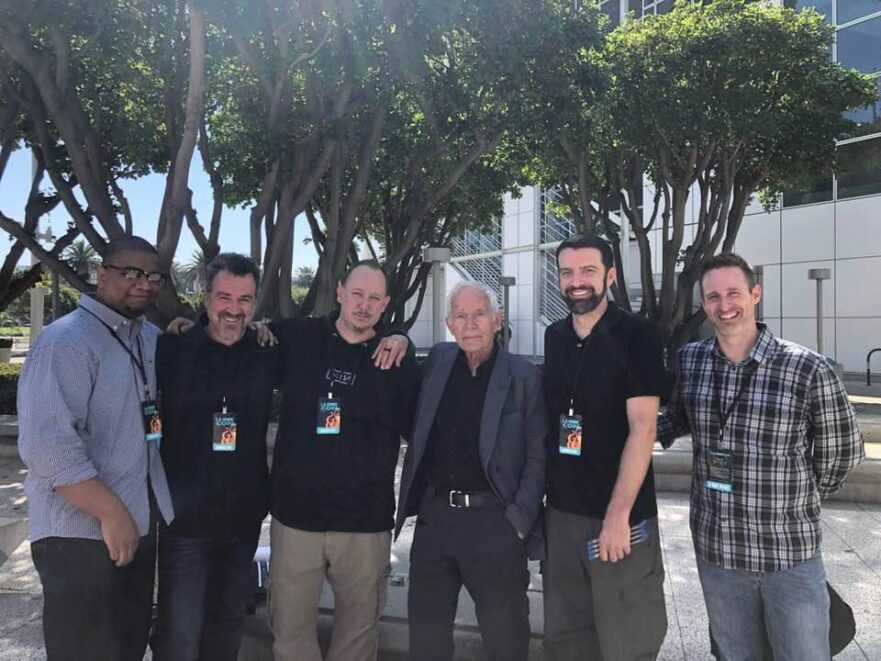
HGL: The idea of doing a documentary about Millennium sounds great, but how hard was it to put the whole thing together?
Jason: You know, it’s just been a long journey. I don’t think the actual act of doing it was hard. I think most of the difficulty fell to Troy; he had the producing side where he had to bring everybody together, and that’s tough. It’s not really the shooting of the documentary, it’s more the logistical aspects of getting everybody together. First approaching them, you have to make them feel like you’re not a crazy fan, making them comfortable with you, agreeing to the documentary, and then setting up the time schedule to get the people to a location. The beautiful thing about Millennium is that most of the people that worked on the show have gone on to be major pillars in the television landscape, but because of that, it’s hard to get them to do an interview because they are so busy. We didn’t have a lot of money to do this, so if you do happen to mess up you make the best of it and move on. But, I don’t think that actual act of making it was that difficult, thanks to Troy doing such a great job. We would fly to wherever we were doing the interviews, we’d have a hotel room, we’d have a place set up for the interviewees to come in and we’d knock them out. We’d do four people one day, four people the next day, and occasionally we’d have to go somewhere for a one-off interview. These people were great, they just started flowing with stories, great little nuggets of information from the show, it just came very easy to them.
Joe Maddrey then came in, took those interviews, and transcribed them into text and created a narrative of what we want to show the audience. Then, the editing process came in. There’s a lot of post-work and there’s a lot of pre-production work in setting the stuff up, so overall it was a really great experience. I just don’t think it was very difficult, it was more of a scheduling issue and money issue more than anything. Of course, when I say it wasn’t difficult, it doesn’t mean we didn’t work hard; we worked really hard. It’s just the actual filming of the documentary wasn’t as difficult as everything that went into getting us to that point was.
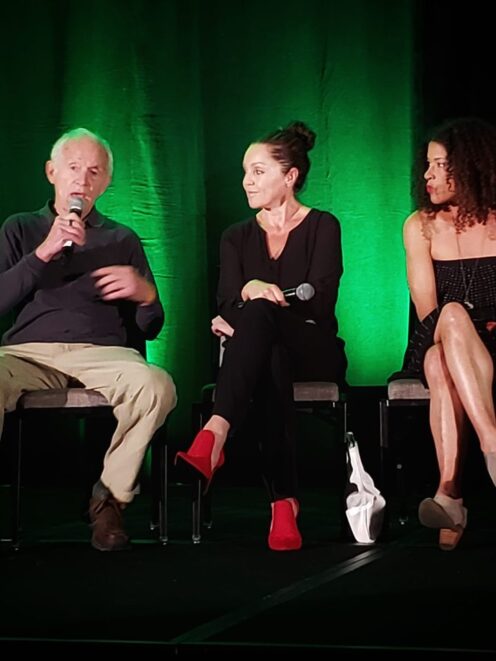
HGL: Was there a plan from the beginning in how you wanted the documentary to play out and come across to the audience? Because one the great things about this documentary is how it easily bridges the gap between the talent and the audience in a fun and informative way.
Troy: In the beginning, in my head, I had an idea of how I wanted the documentary to look, to play out. The great thing about Jason is, after talking about it, he was on the same wavelength as I was about the final product. The funny thing was, we had all these interviews shot, we were happy as hell then thought, oh shit, we have to find a narrative. Then we remembered Joe Maddrey, who was a co-author of Lance Henriksen’s autobiography, and he’s just a phenomenal writer. He’s a Millennium fan and also in the Back to Frank Black book, and when he jumped on board. That just brought everything together.
Jason: Yeah, Joe is pretty amazing, he’s a very analytical and succinct writer, he can find exactly what needs to be said. Troy and I talked quite a bit about the style of the documentary. It wasn’t going to be fan service. This was to try to give you the most in-depth behind-the-scenes information about the show as possible, and to pull out and evoke that love from the actors and creators of the show.
Troy: I wanted the documentary to be for the fans that knew the show and loved the show, but also for those who had never seen the show. They could come in and watch it, not get a lot of spoilers, and still be motivated to go out and get the series.
Jason: That’s a great point, especially with a lot of the reviews that we’ve received, people comment that there’s a lot more to it than just Millennium, and I think that holds true. There is behind-the-scenes information there that you don’t necessarily have to be a fan to enjoy. In fact, you can be an old fan and this re-sparks an interest in the show for you, as well as pique the interest of new fans. Our issue was, how do you intercut all those interviews and tell a narrative? It becomes a very muddy and difficult thing, and that’s where the writer Joe comes in. He’s very analytical, very meticulous in pulling out exactly what’s needed to fill that narrative idea. He was very concise and to the point, and I think that’s what people needed to jump on board with it, especially if you’ve never seen Millennium before.
HGL: There is a lot of information for the viewer to absorb, from actors, directors, producers, writer etc. For the two of you, what surprised you the most listening to these people being interviewed, as the documentary evolved during filming?
Jason: I think we might have the same answer to this. (Laughs) I personally think it was how excited everyone was, the things they remembered, and you could just tell by talking to them how important the show was. The biggest takeaway from everybody we interviewed was that it was so hard, so much work but, damn, it was so rewarding. I just sounded like every single person we interviewed, that was their best moment, the best project they worked on as far as creativity, quality of work, and just the excitement level. It just goes to show you, this small little TV show that lasted three seasons, how much it affected the people that created it. It was surprising because I feel people go onto other projects and forget about things they’ve done in the past; they become less important. But, with this show, it didn’t seem like that at all.
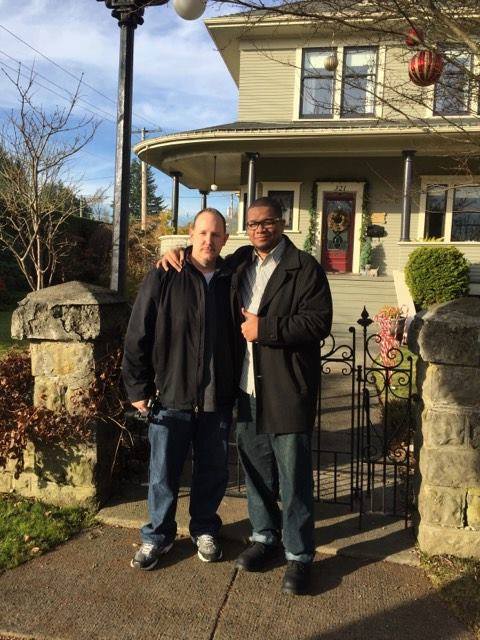
HGL: Millennium After the Millennium has a very successful run on the film festival circuit, it won a lot of awards worldwide. Were you surprised at the fans reaction, the obvious love that still existed for the show?
Jason: Honestly, yes and no. I think that I’m not surprised about their love for the show, I’m just surprised they turned out. Trying to find those old fans and generate interest in new fans, we found that was the challenge. When we started the festival run…man, festivals can be a heartbreaking, time-consuming, and very expensive experience. You don’t know what you’re going to get out of it until it’s all over with. I think Troy’s position on it was, whatever happens, happens. We did our best and made a fantastic film. For me, being more on the filmmaker’s side of it, it was very nerve-wracking. You love this thing, you spent so much time on it so you want it to be well received and respected, so when you put it out to the world like that, it’s nerve-wracking because these are the people that are film lovers, that go to festivals, love movies. It’s all about getting more eyes on the documentary and when we started getting invited to film festivals, winning awards, it just further solidified what we had done and people were still interested in this. As a filmmaker, you make a film for yourself but also for other people’s enjoyment, and in terms of festivals, you just hope people enjoy this piece of art you made, no matter what it is.
HGL: Was it hard getting the documentary off the ground so to speak, in terms of finances, because making movies like this can get really expensive?
Jason: Troy and I talked about this, we knew it was going to be tough, so we needed some kind of start-up capital and that entails us making promises we have to keep. The one thing that made this project easy is that, we talked about this in the very beginning, we were going to see this to the end, we knew it was going to get completed. I approached Troy about doing some pre-orders to raise some capital, we were both worried about doing a Kickstarter or Crowdfunding thing because, one of the things we would have hated to have seen was the campaign fail. We decided to list the movie on our website and asked people to donate, to help get this movie made, and if you donate you’ll get a copy of the film when it finished. It was so successful, people were just giving us money, that it turned into a pre-order for the film and if it wasn’t for them, this would have been much more difficult, so I have to give a shout out to the fans for that.
Troy: When Jason approached me about the idea for the pre-orders, I was really hesitant at first because I knew that was going to put pressure on us to actually get it done. Also, I know how some people can be, they will pre-order the movie and then two weeks down the road ask, where’s my DVD, where’s my Blu-ray? After about a year we started, getting those kinds of questions, people getting mad at us because it wasn’t out yet, we tried to explain that these things take time, but eventually it all worked out, it was a good call.
Jason: To the fans’ credit, they put their money where their mouth is, so to speak, and really it was all about scheduling, trying to get as many people together at the same time so we could just knock interviews out. It was defiantly stressful at times, these people had agreed to talk to us, for free, so you wanted to make sure you weren’t late, you didn’t disappoint them, and were simply as professional as possible.
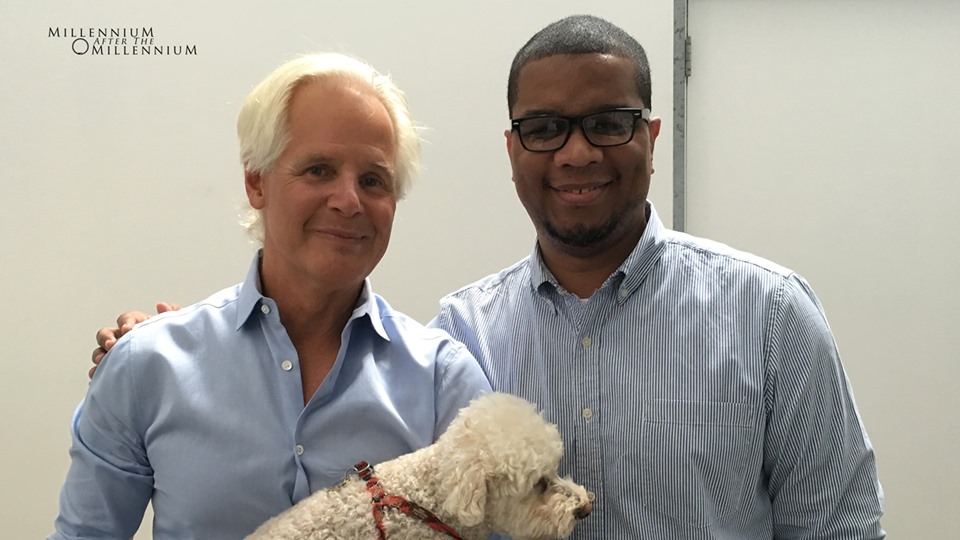
HGL: When the documentary was finally finished and you both had a chance to see it for the first time, was were your initial reactions, both personally and professionally?
Troy: The original cut of the film was about two-and-half hours, and when Jason sent me that first cut, I had the biggest grin on my face because I knew we had finished it, it was done. I don’t think I had told Jason this but I was so proud of what he had done putting this thing together, and I was so proud of what everyone had done, from the vision seven years ago to now, sitting down and being able to watch the finished movie, I was just so happy.
Jason: I didn’t have that same sort of experience, personally. It’s not that I didn’t have the love and respect for it, it’s just because I think at that point, Troy’s job on the front lines was pretty much completed at that point. He’s still producing in terms of suggestions, watching cuts, things like that but I’m literally sitting behind the computer, day in and day out, for hours at a time, watching this thing over and over again, I’ve literally seen this movie a thousand times. For me, it was about seeing the progression of it, not the final product but seeing it progress as we went along, that’s what put the smile on my face.
HGL: So, what projects do you both have coming up next?
Jason: So right after the documentary was done, Troy introduced me to somebody, Carly Street, and Troy, myself, Carly and another gentleman, Mark Francisco, all started a production company called Resurrection Films. We started doing other projects and just came out with one called Dark Winter, it’s on Amazon right now. More exciting, however, and I never know how much to say, is we have a couple new documentary ideas. One is new and another is one that’s been festering since we started this, and that’s the one I’ll talk about a little more. We want to do a documentary that revolves around TV shows that only lasted a single season. We thought it would be really cool to explore those one-hit wonder kind of shows, that didn’t make it past one season, like Firefly, Freaks and Geeks, Terriers, things like that, and then dive really deep into it. Not just about the shows themselves, but how that happens. The show gets picked up, finds a fan base, but is just not big enough for the distributor to want to keep around, put more money into it, or whatever reason it may be, and then it was gone. I’m sure we’ll talk to Chris Carter about it as well, he had The Lone Gunmen, Harsh Realm, and The After. There’s tons of material out there and I guess when we do this one it’s going to come down to how we present this to an audience, because it could be a huge project.
Troy: Brimstone is another show. I was so obsessed with that show, I’m actually good friends with the creators now. I interviewed them a couple times on a podcast and they were like hey, if you’re ever out in L.A. let us know, we’ll take you out to lunch and hang out. I thought they were just saying it to say, but I let them know we were going to be in L.A. and they invited Jason and I out, it was great.
HGL: Do you have any last thoughts on the documentary?
Troy: Yeah, we want to give a shout out to Andrew Shelton, the associate producer. He created the opening credits for the doc and he was our jack of all trades, if we needed something we just went to Andrew.
Jason: We had run a contest for the opening credit sequence, we thought it was a good way to engage the fans to make them feel like they were part of the documentary. It was fantastic, we had some great submissions but Andrew’s really stood out, he really got the show and got what we were after. Between him and Matthew Ingles, who did the art for the doc, it was just amazing. The team that worked on this were an absolute dream, and that doesn’t always happen.
Troy: I think one of the great things about the team on this, especially Matthew Ingles who did the artwork, and Andrew Shelton who did the opening credits, they were fans of Back to Frank Black, so I’d known them for a few years. Jason had a friend named Matthew Gatsos, who did a lot of music for his projects and he ended up doing the music for our documentary.
Jason: I also want to give a shout out to my wife, Shoni. She and Troy both work and put their own money into this project; I’m the broke filmmaker, so she has a vested interest in seeing this completed. The financial support between Shoni, Troy and the fans, that’s the whole reason this thing exists, really.
We want to thank Troy and Jason for taking the time to talk with us. Be sure to visit the official website for Resurrection Films and Millennium After the Millennium for more news and updates.
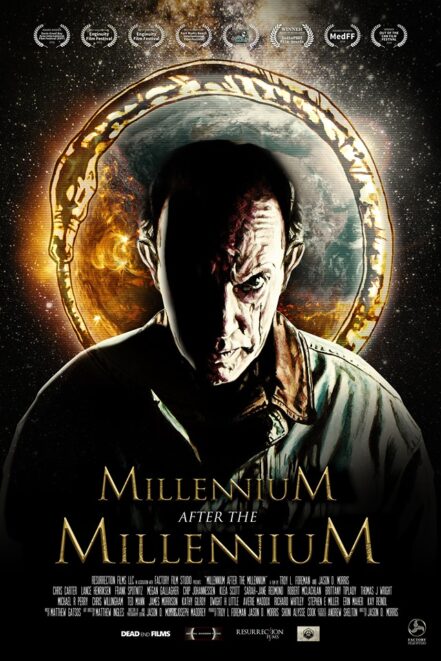
Related Article: Watch Anton Yelchin Doc ‘Love, Antosha’ Free on Tubi



